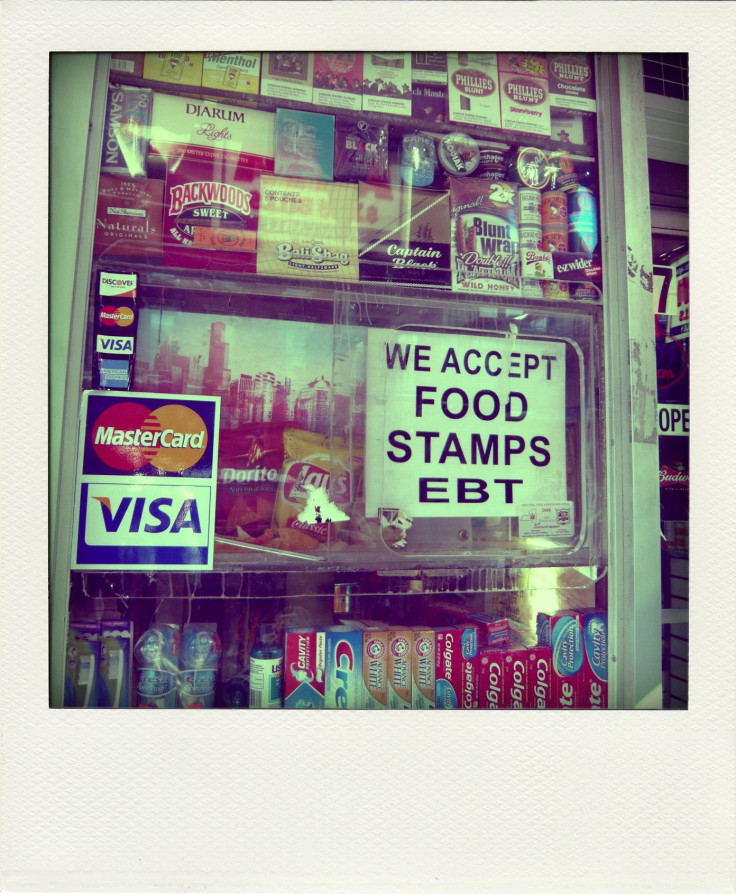Republicans Cut $80B Food Stamp Program From Farm Bill, As White House Threatens To Veto

In an attempt to bring back a massive farm bill that failed in the House last month, Republican leaders have dropped the politically sensitive food stamp portion of the bill. The farm bill has historically put aside billions of dollars for farm subsidies and food stamp programs. But by dropping this section altogether, Republican leaders now hope to win the approval of more conservatives.
GOP leaders released a smaller 608-page version the original bill late Wednesday in order to attract more votes and move it back onto the floor. Voting should begin as early as Thursday.
The fiscally conservative Republicans have been known for their indecision on food stamp programs, which have doubled in cost in the last five years, while Democrats have consistently opposed any cuts.
The Democratic-led Senate easily passed a farm bill with smaller cuts to food stamps but would be unlikely to increase cuts any further. The White House has been adamantly opposed to dropping food stamps from the farm bill, and immediately released a statement late Wednesday that defended the food stamp program as "a cornerstone of our nation's food assistance safety net." The statement went on to warn the House leaders that President Obama will veto the legislation if it presents itself to him.
Food stamps — otherwise known as the Supplemental Nutrition Assistance Program (SNAP) — feed households with an average gross income of $744 a month, and 76 percent of these homes include a child, elderly, or disabled person, according to Feeding America, a leading U.S. domestic hunger relief charity.
According to Feeding America, "Families who lose benefits because of changes in eligibility rules or enrollment processes will feel just as much pain in their refrigerators as if they had received a straightforward cut to their benefit allotment."
But the Republicans aren't completely eradicating the food stamps; instead, they are proposing to split the bill into only farm programs and then propose a bill specific to food stamps at a later date. If the bill were to pass as a split, the new farm bill would cost about $20 billion a year and allow for $2 billion a year in cuts to farm subsidies.
House Democrats responded with pessimistic predictions for the future of a farm bill without food stamps. Rep. Steny Hoyer, the No. 2 Democrat in the House, called the move a "bill to nowhere," considering the Democratic-led Senate will most likely just add the food stamp-allocated annual $80 billion program back in.
The Republican-drafted farm subsidy bill would cut spending by about $14 billion over the next 10 years — simply by ending a $5 billion a year "direct payment" subsidy. In addition, it would expand the crop insurance program that is subsidized by taxpayers by 10 percent, which accumulates $9 billion over 10 years, according to Reuters.
Meanwhile, opposition isn't as clear, as House Agriculture Chairman and Okla. Republican Frank Lucas said last week that he would oppose the splitting of the bill, but has now apprehensively agreed to support the bill.
"Maybe the old dynamic of how we have done things since 1965 isn't valid anymore," Lucas said. "Maybe it is time to try something different."
Farm groups and anti-hunger groups caution House Republicans that splitting up the farm and nutrition programs after over 40 years is ill-advised, considering rural lawmakers add money toward food stamp programs within the farm bill. Considering farm bills have been traditionally enacted by rural lawmakers invested in agricultural programs, as well as urban food stamp supporters and public assistance programs, separating the two would cause a disconnect in the decade-long joint effort. In a letter to Republican House Speaker John Boehner, more than 500 farm groups asked to not split the legislation.
"Republicans are determined to de-fund nutrition assistance," said G.K. Butterfield, Democratic Congressman of North Carolina.
Published by Medicaldaily.com



























